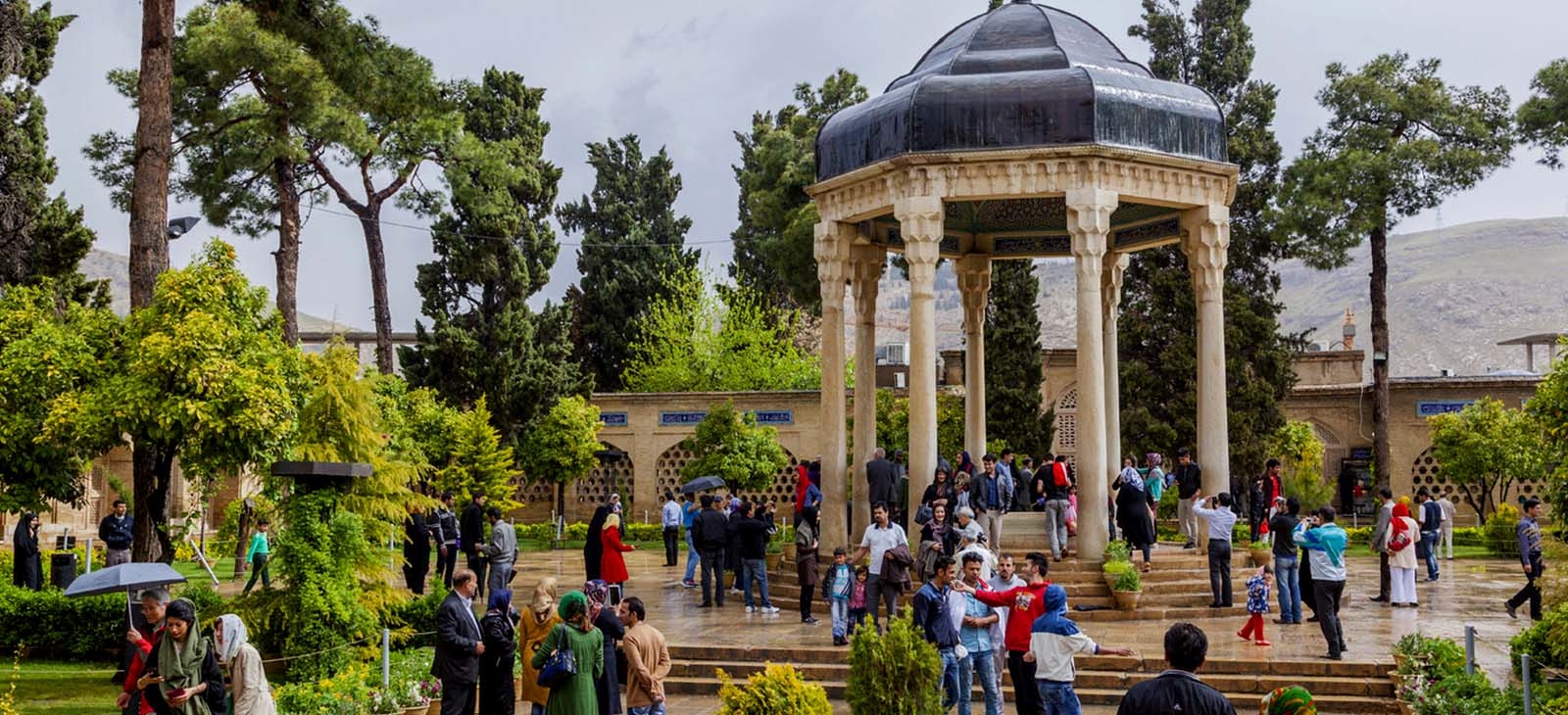Persian literature is one of the world's oldest literatures.
Persian literature is one of the world's oldest literatures. It dates back to the poetry of Avesta, about 1000 years BC. Persian literature inspired Goethe, Ralph Waldo Emerson, and many others, and it has been often dubbed as a most worthy language to serve as a conduit for poetry.
Persian literature has been considered by such thinkers as Goethe as one of the four main bodies of world literature. The Persian language has produced a number of famous poets such as Rumi and Omar Khayyám, Hafez, Saadi, Ferdowsi, Nizami, Attar, Sanai,Nasir Khusraw and so many others .
- Khwāja Shams-ud-Dīn Muhammad Hāfez-e Shīrāzī known by his pen name Hāfez was a Persian poet. He was born in Shiraz, Iran. His collected works are regarded as a pinnacle of Persian literature and are to be found in the homes of most people in Iran, who learn his poems by heart and use them as proverbs and sayings to this day. It is said that by listening to his father's recitations, Hāfez had accomplished the task of learning the Qur'an by heart at an early age (that is in fact the meaning of the word Hafez). His mausoleum, Hāfezieh, is located in the Musalla Gardens of Shiraz.
-
Abū-Muhammad Muslih al-Dīn bin Abdallāh Shīrāzī, Saadi Shirazi was Born in Shiraz, Iran. He was one of the major Persian poets and literary men of the medieval period. He is not only famous in Persian-speaking countries, but has been quoted in western sources as well. He is recognized for the quality of his writings and for the depth of his social and moralthoughts. His best known works are Bustan (The Orchard) completed in 1257 and Gulistan (The Rose Garden) in 1258. Saadi is widely recognized as one of the greatest poets of the classical literary tradition.
- Hakim Abu ʾl-Qasim Ferdowsi Tusi (935–1025 CE), or Firdawsi, was born in in the village of Paj, near the city of Tus, in Khorasan Razavi, Iran. He was a highly revered Persian poet and the author of the epic of Shahnameh (the Persian "Book of Kings"), which is the world's longest epic poetry .Ferdowsi is one of the undisputed giants of Persian literature. After Ferdowsi's Shahnameh a number of other works similar in nature surfaced over the centuries within the cultural sphere of the Persian language. Without exception, all such works were based in style and method on Ferdowsi's Shahnameh, but none of them could quite achieve the same degree of fame and popularity as Ferdowsi's masterpiece.
- Jalāl ad-Dīn Muhammad Rūmī , also known as Jalāl ad-Dīn Muhammad Balkhī, Mawlānā ("our master"), Mevlânâ, Mevlevî ) Mawlawī, "my master"), and more popularly simply as Rūmī (1207 – 17 December 1273), was a 13th-century Persian[1][8] poet, jurist, Islamic scholar, theologian, and Sufi mystic. Rumi's influence transcends national borders and ethnic divisions: Iranians,Tajiks, Turks, Greeks, Pashtuns, other Central Asian Muslims, and the Muslims of South Asia have greatly appreciated his spiritual legacy for the past seven centuries.Rumi's poetry is often divided into various categories: the quatrains (rubayāt) and odes (ghazal) of the Divan, the six books of the Masnavi. The prose works are divided into The Discourses, The Letters, and the Seven Sermons.In Afghanistan, Rumi is known as Mawlānā, in Turkey as Mevlâna, and in Iran as Molavī.
At the proposal of the Permanent Delegations of Afghanistan, Iran, and Turkey, and as approved by its Executive Board and General Conference in conformity with its mission of “constructing in the minds of men the defences of peace”, UNESCO was associated with the celebration, in 2007, of the eight hundredth anniversary of Rumi's birth. The commemoration at UNESCO itself took place on 6 September 2007; UNESCO issued a medal in Rumi's name in the hope that it would prove an encouragement to those who are engaged in research on and dissemination of Rumi's ideas and ideals, which would, in turn, enhance the diffusion of the ideals of UNESCO.

